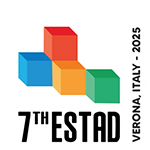Speaker
Description
The metal manufacturing industry, vital yet environmentally taxing, heavily relies on oils for machining, lubrication, and corrosion resistance. This reliance, however, generates significant costs and environmental burdens, including disposal challenges, health hazards, and ecological damage. To address these concerns and foster sustainable practices, oil reconditioning techniques are gaining traction.
This paper reviews conventional and advanced oil reconditioning methods within the metal manufacturing sector. On-site reconditioning removes impurities, while re-refining processes restore used oil to base stock, creating a closed-loop recycling system. The study also examines environmentally friendly alternatives like vegetable oil-based cutting fluids and minimum quantity lubrication (MQL) techniques, which minimize conventional fluid consumption.
Oil reconditioning's applications span diverse metal manufacturing processes, including machining steel, aluminium, alloys, and titanium. Reconditioned oils function as cutting, hydraulic, and lubricating fluids, reducing virgin oil demand and waste. Integrating reconditioned oils with advanced cooling techniques, such as cryogenic cooling, dry cutting, and solid lubricants, further promotes sustainable machining.
Studies indicate a 70% reduction in emissions, waste, and energy consumption for steel and a 90% reduction for aluminium alloys through circular metallurgical practices. Oil reconditioning lowers machining costs and enhances occupational health by minimizing exposure to harmful mists and fumes. Vegetable oil-based cutting fluids demonstrate high corrosion inhibition efficiencies, sometimes reaching 100%.
This review highlights novel research opportunities in sustainable metallurgy, emphasizing the materials science of sustainable metals and alloys. Rethinking alloy design for enhanced recyclability and impurity tolerance is crucial. Scalability of reconditioning processes is essential to meet the demands of the 2 billion-ton annual metal production. By exploring these technical aspects, this paper aims to advance sustainable practices and reduce CO2 emissions in the metal manufacturing industry.
